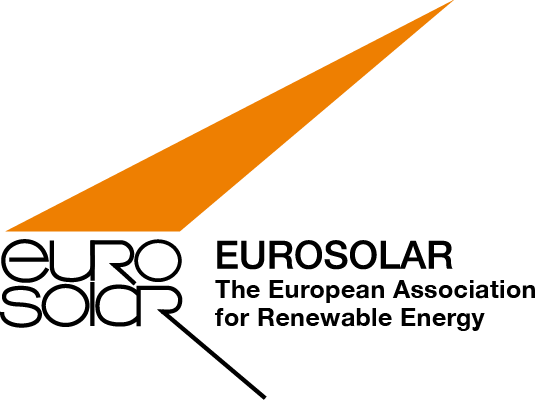Cities/municipalities, architects, municipal and private companies, associations, organizations and cooperatives, journalists and citizens who actively support the energy transition through their commitment or projects are eligible to apply. All projects must already have been realized or be so far advanced that initial results are already available. No products, inventions or books/studies will be awarded.
Applications must be preceded by a brief description of the project/public relations work. This brief description must be a minimum of 800 characters and a maximum of 1500 characters. The most important, award-worthy aspects should be highlighted in the brief description.
You should provide approximately 5 pages of supplemental material, summarized in a PDF file, with your application. Please refer to the descriptions of the individual categories for specific requirements for supplementary material. Applications with accurate, detailed descriptions and including all information relevant to the project have a better chance of being awarded.
The following aspects are important in the jury’s evaluation:
- Degree of innovation
To what extent does the project differ from existing standard solutions in terms of creativity and originality?
- Exemplary character
How easily can the idea be transferred and applied by others? Does it inspire imitation?
- Commitment
To what extent did obstacles and resistance have to be overcome during the realization? How much commitment and willpower is behind it?
- Publicity
Can the project be presented well in the media and can it reach many people?
- Quality of the application documents
Are the documents coherent and plausible? Has reference been made to the evaluation criteria?
Categories
The European Solar Prize is awarded in the following categories:
a) Towns/municipalities, council districts, public utilities
Municipalities, towns, council districts and public utilities that have projects for the use of renewable energies in their administrative area. The Solar Prize is awarded for convincing and holistic measures/strategies in the field of renewable urban planning or energy supply. Local authorities should mention the concrete savings achieved by the measure in their application.
b) Solar architecture and sustainable design
Architectural and planning offices, housing associations, cities and other institutions that design innovative concepts for the use of renewable energies on individual buildings or energy-related utilization concepts for entire city districts. The focus here is on the construction aspect. Applications submitted in this category must include (if possible) the following information:
– Energy efficiency level/class of the building
– Energy consumption/demand of the building (kWh/m²a)
– Which control technology is used
– Details of the supporting structure
– Method of insulation (insulation thickness, insulation material)
– Type of insulation material used
– Type of heat production/heating system (precise specification of the system, technical data such as power consumption, heating capacity, distribution system, etc.)
– Type of electricity production / technical data of the (photovoltaic) system
– Energy and emission savings generated by the project
c) Industrial and commercial companies or farmers
Industrial enterprises, companies, cooperatives and farms that contribute to the market integration of renewable energy through their business models or meet their own energy needs through innovative renewable use concepts.
For Agri-PV: Please indicate how much PV has been installed, how much agricultural land is dual-used (PV and agribusiness) and mention increased yields due to dual-use (if possible).
d) Local or regional associations and organisations
Associations and communities with a local or regional connection that promote grassroots use and distribution of renewable energy in the region.
e) Owners or operators of renewable energy installations
Operators or owners of decentralized renewable energy systems that supply private buildings, industrial enterprises, or educational institutions, or feed electricity into the grid. This includes solar parks and small wind farms.
f) Transport and mobility
Vehicles and transport systems equipped with alternative and climate-friendly drives, as well as sustainable and holistic mobility concepts in the field of public transport and individual transport (e.g. car sharing concepts, e-charging infrastructures).
Cite savings potentials or concrete energy / emission savings.
g) Media
Journalists, publicists, agencies, and filmmakers that bring renewable energy into focus through media channels such as television, radio, online, or print media.
h) Education and vocational training
Institutions, initiatives and individuals that provide education and training in the field of renewable energy and educate people in this regard.
i) One world cooperation
Projects, initiatives and organizations from the field of development cooperation that make sustainable and holistic contributions with the help of renewable energies.
j) Special achievement
Long-term and extraordinary personal commitment in the field of renewable energies. Proposals in this category are particularly welcome in this category.
